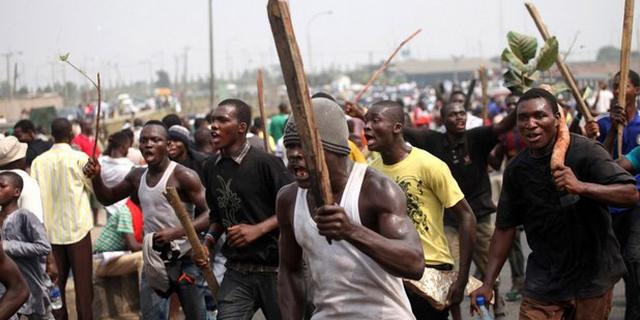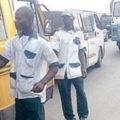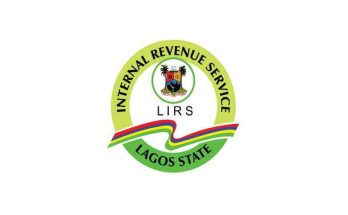By Jimmy
Lagos State is popular for a lot of things; tons of modern infrastructure, the economic heartbeat of Nigeria, and numerous job opportunities, among others. But on the flip side, it is also notorious for many others, like Lagos flood, high cost of living, Lagos traffic that appears like it is sentient and a lot of touts. Nary a bus stop exists in Lagos that doesn’t have some ragamuffin loitering around, either looking to harass people or commercial bus drivers for money.
And while some of them are just menaces, others belong to a demographic known as agbero.
Agbero: Meaning and proper pronunciation
Agbero loosely translates to “someone who helps collect passengers”. It is a Yoruba word, and as such, is written as agbèrò; re-do-do, per the Yoruba tonic solfa system.
These creatures are an inescapable and seemingly unerasable part of the roads of Lagos; they are everywhere. If you take public transport, you will find them waiting at every bus stop along the way, crowding the bus as it pulls in to drop or pick up passengers, hands outstretched for owo load – money for loading. Never mind that neither they nor their kin had any hand in the erection or maintenance of the bus stop.
Any driver who refuses to pay the tax risks having his conductor harassed or a part of his bus (especially the windshield wipers) ripped off.
READ: Yahoo Yahoo in Nigeria: History, techniques and consequences
The cost of dues can vary, but drivers generally pay three types: “booking”, which is paid so they can start work at the motor parks every morning; “loading”, which is paid before each trip and is usually a sum equal to the fare of two passengers; and “tickets”, which are undefined charges paid once or twice a day depending on the parks they use.
Contrary to how they act, these touts are human beings, just that they made certain choices during certain stages of their lives that led down the path to where they are now. Most of them didn’t actually choose to become menaces and terrors of the commuting world, but they found themselves doing anything they could to survive.
Lagos and Agberos
Contrary to their rowdy nature, agberos are actually members of an organization, a national body, in fact – the National Union of Road Transport Workers (NURTW). Technically, the NURTW is an independent Nigerian trade union whose function is to serve the interests of workers in the road transport sector by pushing for social stability for its members as defined by the constitution.
In reality, though, what the union does is collect tolls from public transporters by any means necessary. It has offices in every motor park, local council area, and district, and taxes all commercial vehicles that operate in its regions. These regions are headed by chairmen who oversee their operations and take the lion’s share of the money earned, with agberos as their tax collectors.
In Lagos, a city with an exploding population – now at roughly 15.4 million – most of which relies on public transportation, there is an increasing number of vehicles to serve them and consequently, a lot of money for NURTW to make. Hence, it has become a popular option for the jobless, especially those who decided not to go to school due to one reason or the other, since as long as tires are rolling, there is money to be made.
In fact, according to an article by Nairametrics based on a research report by the International Center for Investigative Reporting (ICIR), agberos in Lagos generate an estimated annual revenue of ₦123bn amassed from daily taxes from bus drivers and tricycle operators in the state. If they were to constitute themselves into a state, agberos would be richer than 35 Nigerian states, second only to their home base of Lagos.
SEE: Know your rights: Can Nigerian police stop you without reason?
It has also spawned a lot of violence. Gangs and factions have formed among the field workers in order to secure the localities that turn in the biggest bounties; these factions are created by the chairmen, also known as area fathers or baba isale. They are much older agberos who have climbed the ranks and are known for their strength, as well as their ruthlessness.
The Lagos State Environmental Law of 2012 forbids all forms of thuggery, touting, and extortion; the Lagos State Road Traffic Law of 2012 also outlaws the collection of tolls. But despite all of these, these laws are nor enforced and little is done by the government to rein in agberos, because they are seen as an alternative and a sort of lesser evil in comparison to greater crimes like armed robbery and kidnapping.
Hence, the NURTW has inadvertently become an employment and crime-management scheme rolled into one, albeit one that the state either can’t fully control or does not wish to.
An agbero will harass a bus conductor and passengers and collect tolls in plain sight of officials of the Lagos State Traffic Management Authority (LASTMA), but you will never see them intervene.
And contrary to popular opinion, probably due to their appearances, agberos are not poor or destitute. Some at the lower levels earn more than some contract staff in banks, and an executive agbero can earn as much as a bank executive. Musiliu Akinsanya, aka MC Oluomo, the former chairman of NURTW, is a household name, especially in Lagos, with a net worth of millions and friends in high places; he is one of the most influential people in the country.
Agbero vs Area Boys
You can always tell an agbero by their appearance and actions; ruthless and menacing, bearing the scars of battles won and not at all shy of starting another. They accost bus drivers like they were the ones who tendered the loans used to purchase the vehicles and demand money with threats and insults sprinkled for the purpose of persuasion.
But contrary to popular belief, agbero is not the same as area boys.
Area boys, like their names suggest, are “boys in the area”. Those ones that didn’t go to school and therefore ended up jobless. They always gather together in secluded corners of the streets, drinking cheap alcohol and begging people for money with a little harassment thrown in if they see that you’re a sondo (weakling).
SEE: Unveiling 5 pillars of NYSC program in Nigeria
But, technically, an area boy is someone who identifies with the area where he lives. Some of them could even be useful to the community, like organizing sporting competitions between the different communities, protecting their own against harassment, and organizing parties and festivals. There was a time when being an area boy used to be a mark of cultural status, and eminent Lagosians like Bola Ahmed Tinubu and Prince Demola Adeniji Adele, a former chairman of the Lagos Island local government, have identified themselves as area boys.
However, the declining economic conditions have forced a change in the perception and activities of area boys, and the former beneficial lot have become thorns in the sides of their communities. They now dabble in drugs, extort shop owners and market women, and a few of them even don garbs of robbers once darkness throws its curtain across the sky. Clashes between factions from different communities can easily turn into a bloodbath that endangers the lives of everyone in the community.








